Discussion Key Social Issue | Respect for human rights
Roundtable Discussion with External Experts
The current state of Sumitomo Corporation's human rights due diligence and future challenges
We established the Sumitomo Corporation Group's Human Rights Policy in 2020, which states that the Group will respect human rights as part of its corporate social responsibilities and aim for sustainable growth together with society.
In the same year, to promote its implementation, we identified respect for human rights as one of the six key social issues the Company needs to address. In 2021, we established a medium-term goal to accurately assess human rights risks in all businesses, including supply chains, and implement risk mitigation measures by 2025. Since then, we have begun human rights due diligence at the business-unit level covering all of our business segments.
Today, nearly two years after this process began, how should we evaluate the results of our initiatives and what direction should we take in the future?
To answer these questions, we organized a roundtable discussion on the current state of our human rights due diligence and future challenges. We invited two external experts in business and human rights serving as members on our Sustainability Advisory Board, and members of the Company's Corporate Sustainability Department leading human rights due diligence.
Speakers
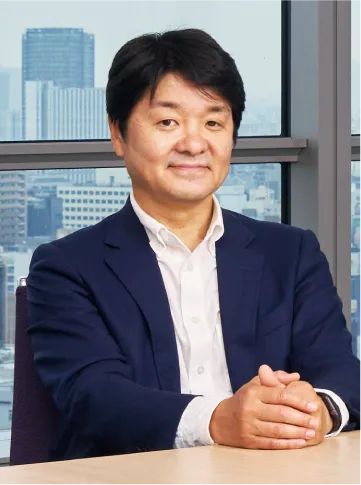
Hidemi Tomita
Managing Director, LRQA Sustainability K.K.
At Sony Corporation, Mr. Hidemi Tomita was involved in research on material physical properties and environmental technologies at the Sony Research Center. He worked at the European Environmental Center, and after his time as Manager of the Environmental Strategy Office, served as General Manager of the CSR Department, established in 2003, for approximately 10 years. After joining Lloyd's Register Quality Assurance Limited (LRQA) in 2013, he became a director of Lloyd's Register Japan K.K. (currently LRQA Sustainability K.K.) in 2016. As part of our human rights due diligence process at the business-unit level, he conducted interviews with each business segment as an external expert. In March 2023, he was appointed to our Sustainability Advisory Board.
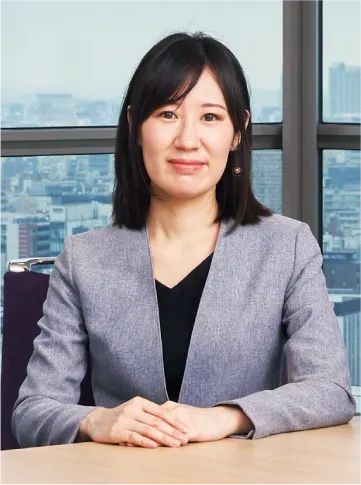
Junko Watanabe
Attorney, Nishimura & Asahi
Ms. Junko Watanabe closely assists corporate clients with their sustainability needs while leveraging her expertise in various legal fields and jurisdictions including M&A, general corporate law, Asian law, and European law. She also excels at working with various stakeholders based on her experiences as a consultant for the International Labour Organization (ILO). Ms. Watanabe provides advice to Japanese corporate clients using her expertise in business and human rights. In March 2023, she was appointed to our Sustainability Advisory Board.
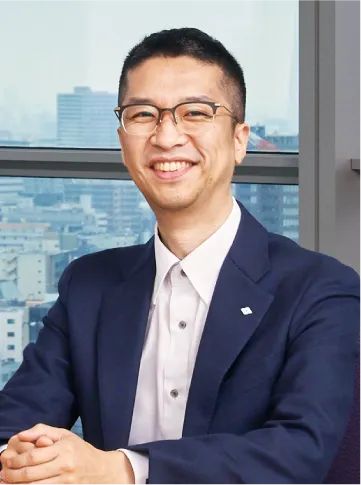
Tadafumi Yamaya
Corporate Sustainability Department, Sumitomo Corporation
Mr. Tadafumi Yamaya began his career in April 2004, when he joined a precision equipment manufacturer. There, he was responsible for sustainability promotion, including environmental regulation compliance, establishment of medium-term sustainability plans, and preparation of integrated reports. Later, in June 2016, he moved to an energy company. He worked in the corporate planning section, where he was responsible for all aspects of sustainability promotion, including formulating GHG emissions reduction targets, improving ESG ratings, and addressing human rights matters. Since he joined Sumitomo Corporation in October 2022, he has been in charge of social and environmental risk management.
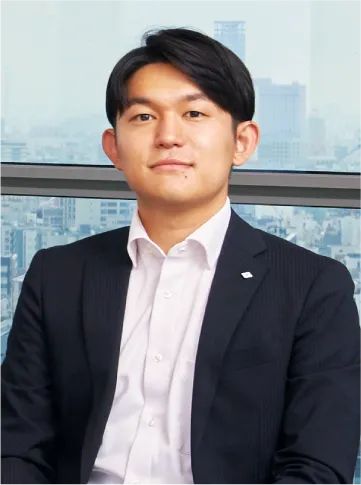
Ryota Fujii
Corporate Sustainability Department, Sumitomo Corporation
Mr. Ryota Fujii joined Sumitomo Corporation in April 2021 and was assigned to the Corporate Sustainability Department. Up to September 2022, he assisted with publication of materials for external release, including the ESG Communication Book, and improving the Company's ESG ratings. Since October 2022, he has been a member of the social and environmental risk management team, engaging in human rights due diligence for the departments he covers and analyzing risks of investments.
History of human rights due diligence
◎FY2020: Examined the Group's businesses and value chains, and under the consultations of Mr. Tomita, identified eight salient human rights issues facing the Group.
◎FY2021 onward: Began human rights due diligence on a business-unit basis from individual business units believed to pose a relatively high risk in terms of human rights. Plan to complete for all seven individual business units (six business units and one initiative) by 2025.
Progress (completed for four individual business units)
◎FY2021: Implemented for the Media & Digital Business Unit and the Living Related & Real Estate Business Unit.
◎FY2022: Implemented for the Infrastructure Business Unit and the Mineral Resources, Energy, Chemical & Electronics Business Unit.
Sumitomo Corporation Group frontline employees have a high awareness of human rights risks
――This question is for Mr. Tomita, who was involved in identifying risks as part of human rights due diligence, and Ms. Watanabe, who has viewed the disclosure. How do you evaluate Sumitomo Corporation's efforts thus far?
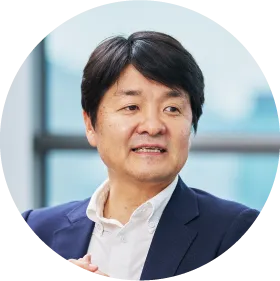
Tomita
Sumitomo Corporation has business operations in a wide range of fields. In addition to businesses with risks already recognized, such as those that impact local communities and occupational health and safety in mineral resource concession projects, the Company also conducts business with new types of human rights risks, including human rights violations caused by AI in the media and digital-related business. Therefore, there is no single answer to the question of what human rights risks Sumitomo Corporation faces, and it is extremely difficult to come up with a concise picture of all such risks.
Given this difficulty, the fact that employees close to the front line took part in my interviews on the risks of each business was a strong positive. Generally speaking, in most cases the corporate department of a company carries out risk assessments. Although I cannot say that one is necessarily better than the other, the fact that Sumitomo Corporation adopts this more bottom-up approach is unique.
I feel like I was really able to understand the unique risks facing each business because the people I interviewed have a true understanding of frontline operations. For example, even in the same industrial field, each business has an individual supply chain and stakeholders, and as a result, they face different risks. An important outcome of my interviews was that I got a clear picture of the current situation by talking to people close to the Company's frontline operations.

Watanabe
I think it is great that Sumitomo Corporation conducted interviews of its many business units and is working on initiatives to address risk tailored to each business. The fact that this follows the risk-based approach advocated in the United Nations Guiding Principles on Business and Human Rights, which recommends to work from larger risks to smaller ones, sets the Company apart from others.
It is also great that the Company already has the culture to implement human rights due diligence groupwide, using a solid system for collaboration between the Corporate Sustainability Department and individual business units.
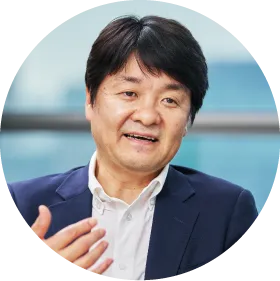
Tomita
I was also impressed with the high degree of awareness toward human rights risks shown by the people I interviewed. They are aware of what needs to be done now and really recognize areas of concern for the future. Since risks change as the business landscape evolves, even if risk management was going well as of the time of the interview, there is no guarantee that this state will continue going forward. Therefore, the important thing is for people on the front line to continue to have a high sensitivity toward risk and always be aware of changes. The interviews indicated to me that sensitivity to risk is deeply rooted across the entire Company.
――What are the current issues facing the Company?

Watanabe
One is providing more detailed information in disclosures, such as the integrated report. The Company has mentioned that efforts have already been initiated to address risks. However, I have found that details are lacking when it comes to its current actions with regard to businesses found to pose high human rights risks and the Company's evaluation for adequacy of such efforts.

Tomita
I agree. Even if risks are identified, if the Company cannot show how it is correcting and preventing these risks, then its human rights due diligence efforts will not have come full circle.

Watanabe
I feel it is also important to disclose how internal and external stakeholders are involved in human rights due diligence initiatives. For example, which stakeholders were involved in the process of formulating the Human Rights Policy, what types of opinions were received, and how were they reflected in this policy.
――Mr. Yamaya and Mr. Fujii, both from the Corporate Sustainability Department, how do you feel about the evaluation and findings shared right now?

Yamaya
I have worked in the sustainability department of several companies previously. I joined Sumitomo Corporation last year and have been in charge of human rights due diligence. It was pointed out that our employees have a high sensitivity toward risks and are extremely serious when it comes to human rights initiatives. I have felt the same way since joining the Company.

Fujii
How best to disclose our human rights due diligence initiatives has been an area of concern. Most of the Group's businesses are run with the close collaboration of investment partners, and thus, we were unsure of the extent to which we should disclose information. At the same time, we need to show stakeholders that we are firmly implementing the PDCA cycle in human rights due diligence and making progress with improvements. We hope to provide disclosures useful to stakeholders while consulting with experts, including those on the Sustainability Advisory Board, with regard to the most appropriate methods.

Yamaya
Having people outside the Company point out shortcomings makes the issues very clear. Human rights due diligence at the business-unit level will wrap up soon. Based on the results and the findings today, we will take action to mitigate future risks, including mapping out high risks.
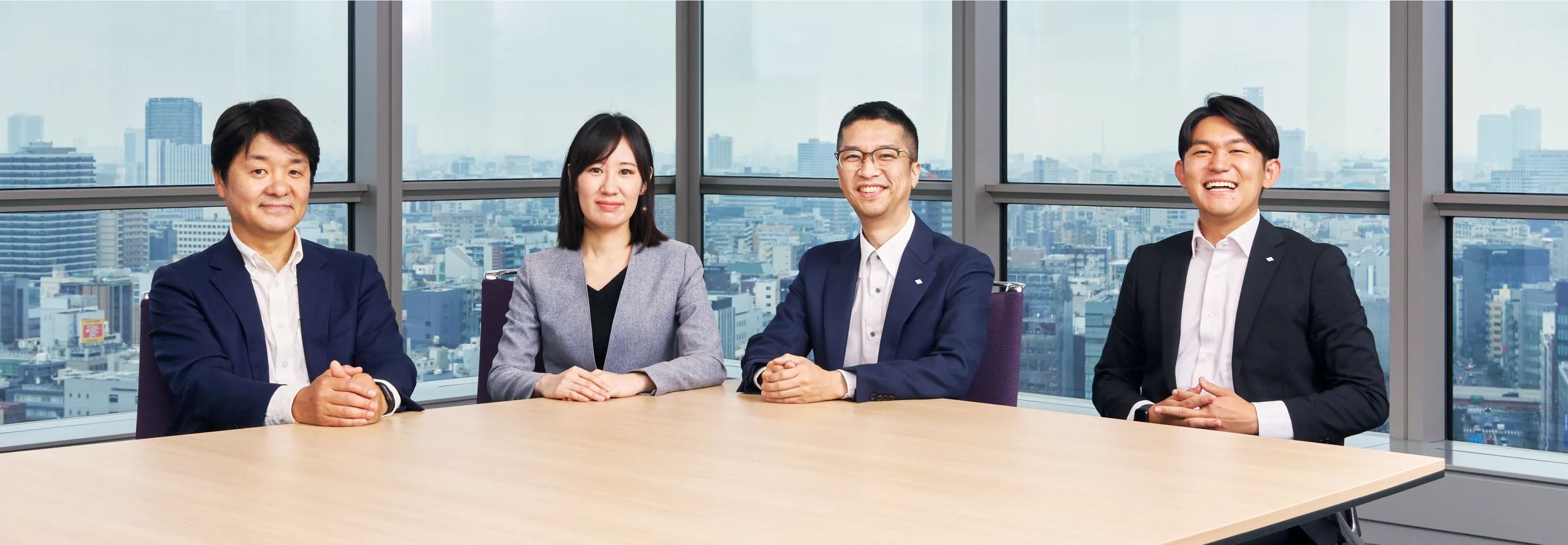
Ensuring that the entire Group takes the initiative in human rights due diligence
――What areas will Sumitomo Corporation work on in the future?

Yamaya
Currently, we identified the eight salient human rights issues*1 facing the Group and are interviewing each business unit with a hypothesis in mind. Earlier, Mr. Tomita praised the fact that he was able to interview persons in charge close to the front line of our businesses. With that being said, the Corporate Sustainability Department leads overall initiatives for human rights due diligence. Given that we are an integrated trading company engaged in a wide range of businesses, it is important for each group company, which identifies and manages risks on the front line, to proactively implement human rights due diligence.
Meanwhile, even if group companies are able to lead human rights due diligence, the corporate group including the Corporate Sustainability Department still needs to verify whether sufficient risk assessment and countermeasures are being undertaken on the front line and elaborately check that actions are being taken in response to high risks from a companywide perspective. Therefore, it is necessary to establish an appropriate design for determining the roles of each layer, including the corporate group, individual business units, and group companies we invest in.
――Ms. Watanabe and Mr. Tomita, what are your thoughts on future initiatives?

Watanabe
Watanabe: First, I feel that the further strengthening of the risk management system groupwide would be a move in the right direction. Currently, priority has been given to initiatives depending on the extent of risk identified in interviews with individual business units. In order to raise greater risk management awareness on the front line, I encourage the Company to strengthen its collaborative system with group companies. I believe the Company is already implementing a number of initiatives for events determined to pose a high risk. Nevertheless, I do recommend that the Company has an expert in international human rights check whether initiatives to address each issue are truly adequate or not. It would be ideal for the Company to establish a platform that can share expertise from these initiatives in high-risk fields within the Group while further refining its response to risks.

Tomita
I believe that dividing roles according to each layer, such as corporate group, individual business units, and group companies, is key to having successful initiatives for respecting human rights. It is important for individual business units and group companies to continue to implement human rights due diligence on their own and for the corporate group to supervise their efforts as appropriate.
To achieve this, the persons in charge of each layer must undergo training. This should not only teach knowledge but also foster the ability to think on their own. This process may be a long road, but the only way to success is to see the process through to the end.
Approaching risk based on the degree of seriousness is highly effective, but actual initiatives can be difficult. For example, it should be difficult to simply compare which poses a higher risk when it comes to the initiatives of different business units.
Therefore, even when giving priority to the higher risks with speed in mind, in order to determine risk appropriately, a comprehensive approach involving the entire business must be taken. The important thing is for each individual layer to thoroughly follow the risk-based approach. Toward this end, a system must be in place that empowers each and every employee to work autonomously.
Priority should be placed on strengthening our grievance mechanism
――What other initiatives must be implemented?

Fujii
We are now in the second half of our human rights due diligence at the business-unit level. In addition to thoroughly implementing these initiatives, as laid out in our medium-term goals for key social issues, we recognize the need to explore the establishment of a more effective grievance mechanism in the future based on the evaluation results of our human rights due diligence on a business-unit basis. Currently, our corporate website has contact points available in English and Japanese, but there is still room for improvement. However, introducing a grievance mechanism at every business site will overload operations, so we hope to receive views from various people, discuss them thoroughly, and explore the optimal format.

Watanabe
Providing services in Japanese and English is not enough, considering the number of business segments and regions where the Company operates. Meanwhile, regarding the level of grievance mechanism and where to deploy it, the process should also begin with a risk-based approach, and introducing it from business sites with a high risk is a realistic and effective method.

Tomita
If the current system is applied to the entire Group in general, the next step should be to consider what kind of mechanism is best for receiving reports on relatively high-risk issues. To respond to the human rights risks associated with a wide range of businesses, it may be necessary to have various complaint-handling mechanisms according to the rights holders*2 involved in each.
*2: People who have rights. In the context of business and human rights, it refers to people whose human rights may be violated through the activities of a company.

Watanabe
Many companies in Japan tend to introduce or strengthen their grievance mechanisms after completing human rights due diligence. However, it is effective to start efforts related to the grievance mechanism as soon as possible. This is because there are many cases where the introduction of the grievance mechanism has identified new human rights risks and thus it makes following actions for human rights due diligence more efficient. In addition, I think it will be more effective to cooperate with the Legal Department and the Legal Compliance Department on issues such as upgrading the existing whistleblower system.

Tomita
I would also like to see the Company work on human rights due diligence and the establishment of a more effective grievance mechanism at the same time. The expected timeline for human rights initiatives is becoming clear due to the progress of legislation in Europe, and the need to strengthen our grievance mechanism at an early stage is also increasing. For both human rights due diligence and the grievance mechanism, I think it is important to be aware of the timeline and to organize and disclose what will be completed by when to some extent.
Taking a unique approach that truly works for Sumitomo Corporation
――Mr. Fujii and Mr. Yamaya, how do you feel about the future approaches provided here as advice?

Fujii
The advice about a risk-based approach was extremely enlightening. When we actually pursue this, even if we tell the front line that “this is a high risk,” they may often have doubt as to “how can you say this poses a higher risk for us than for other business units or departments.” To prevent this, I feel we need to explain logically how we identify risks, assign priorities, and decide which actions to take. As for the advice on dividing roles by layer and conducting employee training, we have already begun initiatives. Specifically, all of Sumitomo Corporation's employees underwent e-learning on human rights last year. This year, we will roll this training out to regional organizations and subsidiaries.

Yamaya
Based on the advice provided today, I feel that there is a lot we need to address and we have a long way to go. For example, in regard to the risk-based approach, for group companies, we need to increase opportunities to consistently communicate why the business faces high risks through detailed explanations, workshops, and other efforts.
In addition, the Self-Assessment Questionnaire (SAQ), a survey that checks whether suppliers are in compliance with our required standards of conduct, is implemented for specific businesses, but not uniformly for the Company as a whole. Should we consider expanding the scope of this in the future?

Tomita
Personally, I feel that the conventional format of the SAQ has resulted in many cases where it does not function effectively in response to the true goal of risk identification, and its necessity is doubtful. Therefore, when using the SAQ, I would like the Company to think from scratch about the format that suits its business characteristics without thinking that it has to cover general questionnaire items. To pursue the essence rather than the form, I would like you to approach the SAQ with a spirit of “creating a completely new way.”

Watanabe
As Mr. Tomita just said, I feel that the SAQ is full of abstract survey items and is not particularly effective. If a response to the question “Do you use forced labor” simply says “No” and the Company does not go any further, then you will not be able to identify actual risks. I agree that the Company should do what needs to be done to identify true risks.

Yamaya
I understood well the importance of thinking about what needs to be done to fundamentally reduce risk, without being bogged down by conventional methods. I feel that many companies want to show that they are doing “a good job” not only in human rights but also in general sustainability topics. However, if we stop there, our initiatives will not evolve, and we will not be able to meet the level of human rights initiatives that is currently required worldwide. I would like to think about what is truly important and what is suitable for our Company, communicate with each internal organization and external stakeholders, and listen to the opinions of experts as we move forward. Thank you for your time today.
Comments from four business units (Planning & Coordination Departments*3 or departments in charge of overseeing group companies) where human rights due diligence was carried out
Digital Business Development Department (responsible for overseeing SC Digital Media K. K.), Media & Digital Business Unit
SC Digital Media K.K., which offers marketing support, video production, and live streaming services to client companies, handles a wide range of data, including consumer-related information.
Through dialogue held with SC Digital Media as part of the human rights due diligence carried out, we recognized that there were potential human rights risks when it comes to their handling of data and protection of privacy. To prevent these risks from occurring, we took several measures including raising internal awareness and implementing operational improvements. We will continue to address business and human rights with a high level of awareness to properly fulfill our responsibilities as a corporate citizen.
Retail Business Department No. 2 (responsible for overseeing Sumisho Montblanc Co., Ltd.), Living Related & Real Estate Business Unit
Sumisho Montblanc Co., Ltd., which designs, manufactures, and sells lab coats and service uniforms, has always given full consideration to the safety of workers at the overseas and domestic plants contracted for production. Through the human rights due diligence that was carried out, our department was reminded of its importance and recognized supply chain issues.
Sumisho Montblanc is working on initiatives that include (1) conducting on-site inspections at overseas plants, (2) establishing guidelines for CSR auditing activities, and (3) establishing a supplier code of conduct with external experts and carrying out transactions based on it. In addition, when our department discusses further enhancement of corporate governance with the company, we are able to utilize the information organized during human rights due diligence.
Planning & Coordination Department, Infrastructure Business Unit*3
As our business unit has many projects rooted in local communities, we are committed to protecting the human rights of the local residents and the occupational safety of the workers on-site. Since the human rights due diligence was conducted for all businesses in the unit, it provided an excellent opportunity to reconfirm our actions to date. It also helped us to take a fresh look at the supply chain to identify human rights issues and measures to address them. Furthermore, there were also opportunities for e-learning and to receive advice from outside experts. As a result, the due diligence process also helped raise awareness of those in the department and increase their literacy.
Planning & Coordination Department, Mineral Resources, Energy, Chemical & Electronics Business Unit*3
We were able to comprehensively confirm the human rights risks of each business line of the business unit. For those where risks such as occupational injury and lack of traceability were identified, we developed action plans for preventing and mitigating these risks, and have begun carrying them out. As for the mining business, we were also able to confirm that there were no major issues with regard to environmental impact assessments, impact on local communities, and the working environments at manufacturing plants. In addition, the proactive risk reduction initiatives for contractors and upstream suppliers were shared internally as good practices to raise the overall level of efforts.
*3: Departments in charge of strategy, performance management, planning, and human resources for each business unit. The departments serve as the business unit's point of contact and supervising entity for sustainability initiatives, including human rights due diligence.